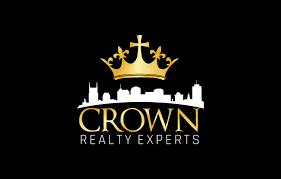For those searching for the American Dream, home ownership is a quintessential part of the process. However, the tax implications of owning that type of real estate can blindside you, especially when it comes to selling and purchasing your property. Many people question whether or not these costs are worth the implications of actually purchasing a home, but with the 1031 exchange, there can be a tangible fiscal advantage to home ownership.
The 1031 exchange involves the process of “exchanging” one property for another without entangling yourself in massive taxes. If you are looking to sell your primary residence and have held your property for longer than a year, you can be eligible to receive a long term capital gain rate of 20% or less, which is a nice savings from the ordinary cost that can rise up to 40%. With your principal residence exclusion, let’s assume you paid $600,000 for your single home. Once you’re ready to sell, let’s say your house closed at a comfortable $900,000, leaving you with $300,000 in capital gains. While usually that entire sum would be subject to taxation, under the exclusion you are entitled to remove $250,000 of that dividend so the only portion taxed would be the remaining $50,000.
If you are married, the benefits of the 1031 are even greater. A married couple is entitled to exclude up to $500,000 of their residence, meaning that with the previous example the entire sum of your capital gain would be covered, and you would not have to pay those taxes.
In the case that your home is not a primary residence, there are several conditions that must be met to qualify for your tax exemption. Primarily, you have a deadline of 180 days between selling your old property and purchasing a new one. You will need to provide concrete evidence after 45 days of your first sale that you have designated potential “replacement” properties for your exchange.
Moreover, you are required to use a qualified intermediary when selling your home. As a seller, the Treasury does not want you to have ultimate control of the proceeds of your old property, as all your revenue is to be poured into the new one. An intermediary, therefore, is to hold the money received from your first home and ensure that money is used to invest in your new property. This individual cannot be your broker, attorney, or anyone you would theoretically have control over. However, referral sources are best sought from these professionals & friends & family who have done these successfully.
The 1031 exchange is intended to be a safe harbor for those looking to buy and sell. If you miss your 180 day deadline, and you can prove you never had control over the money during your exchange, there is a certain legislative grace where you could possibly make the case that you are qualified to be exempt from a certain fraction of taxation on your capital gains.
Ultimately, the 1031 exchange is worth looking into when looking to upgrade your investment properties. It can be an economical way to buy and sell without being faced with a hefty tax, so if you do your homework and abide by its guidelines, you could be on track to save major money.


